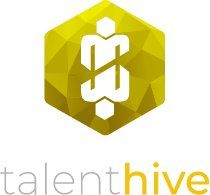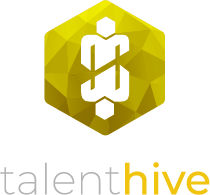IS SLOW HIRING HURTING YOUR BRAND?
Matt Love-Smith • September 20, 2021
One of the most fundamental errors made by inexperienced recruiters is slow hiring. You can see the logic behind it. An organisation may have a culture of working long hours to pave the way for business success. They rightly take pride in their meticulous planning and execution of established process and when the time comes to hire new talent, they’re damned if they’re going to start to become more agile. Hire slow, fire fast is a well worn business mantra.
But a protracted recruitment process does not translate into better hiring outcomes. The longer you deliberate, the likelier you are to lose quality candidates to a competitor. Industry analysts reckon the average time taken to fill roles is now as high as 25 days – two and half times longer than the average candidate stays on the jobs market.
Too many employers obsess over the cost-per-hire metric, a short-termist approach which completely ignores the potentially astronomical costs of hiring a so-so candidate who adds little value to the business. Advocates of ‘speed hiring’ focus on snapping up high quality candidates who have plenty of other job options and are unlikely to hang around for much more than a few days after submitting their application.
Of course, a quick hiring process doesn’t mean lowering your standards. It simply means understanding your ‘key ingredients’ for the role, being able to recognise these in the candidate, and being ready to execute on the essential steps to hire. So that when your candidate arrives your in a position to move fast.
Let’s examine the reasons why slow hiring damages your business:
- Candidates in high demand don’t stay on the market for long. Drag out the hiring process and the most sought-after prospects will have more opportunities by the day. If your competitor makes a quick acceptance offer when you’re still halfway through the process, the candidate is left with a choice: go for the soon-to-expire offer or wait for a possible future offer from you. Unless you’re a corporate powerhouse with prospective employees begging to work for you, the odds of them remaining available at the end of your recruitment process diminish as time goes on. Ergo, drawing out the recruitment process won’t help you find top talent – it’ll leave you with a pool of mediocrity from which to choose.
- Productivity will drop if positions remain vacant for too long. Your thorough quest for that mythical dream candidate will result in a loss of productivity and revenue. The degree to which this impacts your business depends on how mission-critical the job is, but frankly, for small businesses and startups, every job should be mission-critical. When designing your recruitment process, calculate the opportunity cost of handing the reigns to your existing workforce, and ask yourself whether an extended hiring process is really worth it.
- Candidates use the recruitment experience as a litmus test of the corporate culture. Remember, they view the interview process as the first – and perhaps only – interaction with your company, and will draw conclusions about what it’s like to work there based on that. It may seem unfair, but a slow recruitment process is often interpreted as an indicator of business practice as a whole. Take too long to give them a job, and they start wondering how long it’ll take to advance within the organization, receive project opportunities or pay reviews etc. The trick is to stir a sense of excitement between the hiring manager/recruiter and the candidate. Adopt a speedy application and interview process before honing in on your preferred candidate, make that offer and the candidate will view you as a dynamic company with the drive and ambition to match their own.
For highly qualified candidates with years of experience and expertise being in demand is the norm. Even before they see your job listing, they’ve been approached by headhunters attempting to lure them away from their current employer. It’s hard enough to attract top talent without the handicap of a needlessly over engineered and sluggish recruitment process. Let your hiring strategy reflect your brand – agile, purposeful, decisive – and you’ll attract and win talent that aspires to the very same.
Matt is a Director of The Talent Hive and leads the Engineering recruitment practice within the business. Originally from the UK he’s been living in New Zealand for 12 years. Matt is a retired ‘amateur’ athlete who has given up chasing great marathon times for chasing his young children around the park, a far more worthy (if not exhausting) pursuit.
At The Talent Hive we specialise in connecting IT & Engineering professionals with the right career opportunities. We encourage collaboration, socialising your success and sharing industry insight and expertise. Start the journey, connect with The Talent Hive today.

The economic conditions are influencing the contract employment landscape in several ways. Here are some of the trends Talent Hive has seen recently. Demand Shifts NZ firms facing economic headwinds are hesitant to commit to FTE hires but with projects and deadlines still to deliver on, there is likely to be more reliance on temporary and contract solutions to manage workloads in the coming months. Available Talent Although not widespread, layoffs and restructures in the Tech sector could lead to a larger pool of candidates available for temporary and contract work, and Talent Hive has seen an increase in enquiries from people looking to understand how they might set themselves up for contract engagements. This has the potential to increase competition but could also provide businesses with access to qualified talent on a flexible basis. Tech Sector Specifics We are seeing an increase in demand for contract staff recently, particularly Software Developers, Integration and Solution Architects, and Business Analysts. This upswing in demand is reflected in the recent Seek job listings data. There are 207 Contract IT/Tech roles advertised on Seek today and 23% of those contract roles have been listed in the last 7 days. 52 of the 207 contract roles advertised are for Software Eng/Developers with 30 listed ads for Contract BA’s. Wage Control In Stats NZ’s latest update, New Zealand's salary rates actually increased by 4.1 percent in the year to March. That labour cost growth slightly outstripped inflation, which was sitting at 4 percent. Contract hourly rates in the Technology sector have stabilised in recent months as hiring demand has decreased and we may even see hourly rates come back a little, particularly for role types where there is an oversupply of contract talent. Hybrid Work Trend One trend we are certainly seeing in the contract market are fewer remote work opportunities. Increasingly there is a requirement for contractors to have the ability to work some of the week at a designated office and this is restricting the opportunities contractors are able to go for. Full remote work options aren’t completely gone but they are significantly reduced. Contract candidates must be open to in-office work for at least some portion of their engagement. Overall, the current climate creates a complex landscape for both businesses seeking talent and professionals exploring temporary and contract opportunities. Success for Contractors will depend on adaptability, flexibility around rates, and contract length. Talent Hive's Value Talent Hive's understanding of the current market dynamics, along with our strong network of skilled professionals, positions us uniquely to support both clients and candidates Addressing Uncertainty: For businesses navigating hiring uncertainty, Talent Hive offers flexible staffing solutions. We have access to contract talent that are ready to fill immediate skill gaps and help organisations manage fluctuating workloads. Beyond Just Tech Skills: We understand that finding the right technical expertise is only half the battle. Talent Hive's strong connections within the contractor talent pool allow us to identify professionals who are not only technically capable but also a strong cultural and organisational fit for our clients. This approach ensures smoother onboarding and a positive impact for both the contractor and the employer. We would like to share some of the contractors we’re working with at the moment. Click below to view some of the great IT talent we're working with to find roles at the moment.





